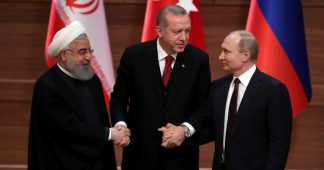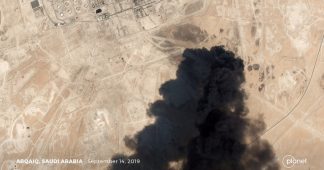The Unwanted Wars
Why the Middle East Is More Combustible Than Ever
The war that now looms largest is a war nobody apparently wants. During his presidential campaign, Donald Trump railed against the United States’ entanglement in Middle Eastern wars, and since assuming office, he has not changed his tune. Iran has no interest in a wide-ranging conflict that it knows it could not win. Israel is satisfied with calibrated operations in Iraq, Lebanon, Syria, and Gaza but fears a larger confrontation that could expose it to thousands of rockets. Saudi Arabia is determined to push back against Iran, but without confronting it militarily. Yet the conditions for an all-out war in the Middle East are riper than at any time in recent memory.
A conflict could break out in any one of a number of places for any one of a number of reasons. Consider the September 14 attack on Saudi oil facilities: it could theoretically have been perpetrated by the Houthis, a Yemeni rebel group, as part of their war with the kingdom; by Iran, as a response to debilitating U.S. sanctions; or by an Iranian-backed Shiite militia in Iraq. If Washington decided to take military action against Tehran, this could in turn prompt Iranian retaliation against the United States’ Gulf allies, an attack by Hezbollah on Israel, or a Shiite militia operation against U.S. personnel in Iraq. Likewise, Israeli operations against Iranian allies anywhere in the Middle East could trigger a regionwide chain reaction. Because any development anywhere in the region can have ripple effects everywhere, narrowly containing a crisis is fast becoming an exercise in futility.
Read more at https://www.foreignaffairs.com/articles/middle-east/2019-10-02











